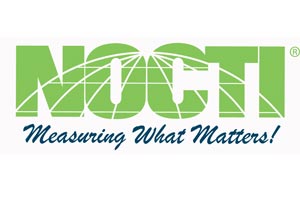MEDICAL ASSISTANT
-
Course Codes by Year: 8345/8346
Grades: Grades: 10-11 (Year-1); 11-12 (Year-2) Recommended
Two-Year Program
Prerequisites for 8345: None
Prerequisite for 8346 Medical Assistant I (8345)
Credits: Two (2) Credits 1st year; Two (2) Credits 2nd year
Students who are interested in working in the area of healthcare as it relates to caring for patients, in addition to performing administrative and clinical tasks, should check out the Medical Assistant program. Explore exciting training and career opportunities.
The Medical Assistant Program is a two (2) year program that provides students with foundational knowledge in basic anatomy, physiology, medical ethics, asepsis, terminology, medical mathematics and legal responsibilities. Students also develop basic skills and techniques to assist the healthcare provider and/or medical professionals in patient examinations, basic emergency care, simple laboratory tests, and administrative duties. They also learn management of health records, cardiopulmonary resuscitation, care and use of equipment, collection and analysis of lab specimens, and special diagnostic testing related to basic diseases and disorders treatment and medication.
Participation in the program enables students to prepare for the NOCTI (National Occupational Competency Testing Institute) Medical Assisting Exam, which demonstrates students' understanding of concepts and knowledge needed to exceed in the area of Medical Assisting. Successful completion of the program may lead to employment in a healthcare setting and an industry credential.
Occupations: Registered Nurse; Licensed Practical Nurse; Certified Nurse; Nursing Assistant; Pharmacy Technician, Dental Assistants, Medical Records and Health Information Technician, Pharmacy Technician
Typical Virginia Salary: $24,790-$47,250 depending on educational level and specialization
National Estimated Salary: $33,610
Employment Outlook: Employment of medical assistants is projected to grow 29 percent from 2016 to 2026, much faster than the average for all occupations. The growth of the aging baby-boom population will continue to increase demand for preventive medical services, which are often provided by physicians.


